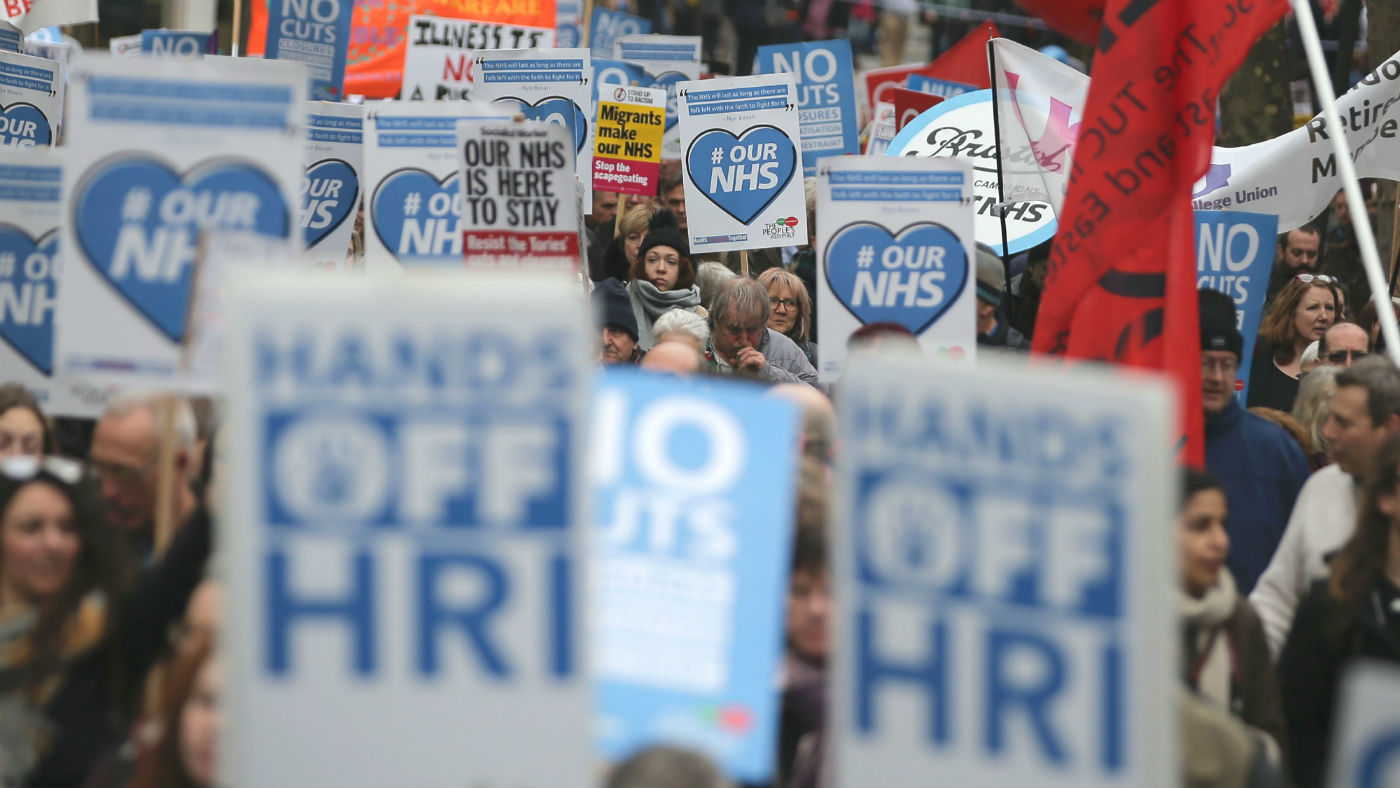Labour sets outs ‘emergency budget’ for public services
John McDonnell pledges to spend an extra £17bn a year on the NHS, social care, schools and local government

A free daily email with the biggest news stories of the day – and the best features from TheWeek.com
You are now subscribed
Your newsletter sign-up was successful
Labour’s shadow chancellor has called for an end to austerity and an “emergency budget for public services” in a speech laying out the party’s economic platform ahead of the Budget next week.
John McDonnell said Chancellor Philip Hammond was out of touch with the lives of ordinary people who are increasingly angry after seven years of cuts.
“They were told austerity was the solution to the economic crisis,” he said. “So it’s understandable that after seven years of the austerity solution, they are angry when they queue for hours at A&E, see their school laying off teaching assistants, their Surestart centre closing and the local neighbourhood police withdrawn from their streets.”
The Week
Escape your echo chamber. Get the facts behind the news, plus analysis from multiple perspectives.

Sign up for The Week's Free Newsletters
From our morning news briefing to a weekly Good News Newsletter, get the best of The Week delivered directly to your inbox.
From our morning news briefing to a weekly Good News Newsletter, get the best of The Week delivered directly to your inbox.
Promising to spend an extra £17bn a year on the NHS, social care, schools and local government, McDonnell sought to paint the Tories as the party of tax avoidance by citing the recent Paradise Papers revelations.
He said extra spending under Labour would be paid for by tax rises for companies and “the rich”, which led to accusations Labour “would have to drive up Britain’s debts to balance the books”, says the London Evening Standard.
A week before the budget, McDonnell “wants to create a clear red line between him and the present incumbent of Number 11”, says the BBC’s Kamal Ahmed.
McDonnell has said he’s willing to borrow more to invest in infrastructure, arguing it’s a good time to do so as interest rates are at historic lows. The Conservatives claim more borrowing would lead to more debt, higher taxes and fewer jobs.
A free daily email with the biggest news stories of the day – and the best features from TheWeek.com
Austerity linked to 120,000 deaths
The shadow chancellor’s call for an end to public sector cuts carries added resonance after a study by UCL and Cambridge University academics linked austerity policies to more than 120,000 deaths over the past seven and half years.
Real-term funding for health and social care has fallen dramatically since David Cameron came to power in 2010. The researchers conclude this “may have produced” the substantial increase in deaths. They specifically highlighted the sharp increase in mortality after 2010, compared with the steady decline from 2001 to 2010.
The paper, published by BMJ Open, says there were 45,000 more deaths in the first four years after cuts began than would have been expected if funding had stayed at pre-2010 levels.
Based on those trends it predicted 152,141 extra deaths between 2015 and 2020 – 100 a day – which one of the authors likened to “economic murder”.
-
 6 of the world’s most accessible destinations
6 of the world’s most accessible destinationsThe Week Recommends Experience all of Berlin, Singapore and Sydney
-
 How the FCC’s ‘equal time’ rule works
How the FCC’s ‘equal time’ rule worksIn the Spotlight The law is at the heart of the Colbert-CBS conflict
-
 What is the endgame in the DHS shutdown?
What is the endgame in the DHS shutdown?Today’s Big Question Democrats want to rein in ICE’s immigration crackdown
-
 How corrupt is the UK?
How corrupt is the UK?The Explainer Decline in standards ‘risks becoming a defining feature of our political culture’ as Britain falls to lowest ever score on global index
-
 The high street: Britain’s next political battleground?
The high street: Britain’s next political battleground?In the Spotlight Mass closure of shops and influx of organised crime are fuelling voter anger, and offer an opening for Reform UK
-
 Is a Reform-Tory pact becoming more likely?
Is a Reform-Tory pact becoming more likely?Today’s Big Question Nigel Farage’s party is ahead in the polls but still falls well short of a Commons majority, while Conservatives are still losing MPs to Reform
-
 Taking the low road: why the SNP is still standing strong
Taking the low road: why the SNP is still standing strongTalking Point Party is on track for a fifth consecutive victory in May’s Holyrood election, despite controversies and plummeting support
-
 What difference will the 'historic' UK-Germany treaty make?
What difference will the 'historic' UK-Germany treaty make?Today's Big Question Europe's two biggest economies sign first treaty since WWII, underscoring 'triangle alliance' with France amid growing Russian threat and US distance
-
 Is the G7 still relevant?
Is the G7 still relevant?Talking Point Donald Trump's early departure cast a shadow over this week's meeting of the world's major democracies
-
 Angela Rayner: Labour's next leader?
Angela Rayner: Labour's next leader?Today's Big Question A leaked memo has sparked speculation that the deputy PM is positioning herself as the left-of-centre alternative to Keir Starmer
-
 Is Starmer's plan to send migrants overseas Rwanda 2.0?
Is Starmer's plan to send migrants overseas Rwanda 2.0?Today's Big Question Failed asylum seekers could be removed to Balkan nations under new government plans